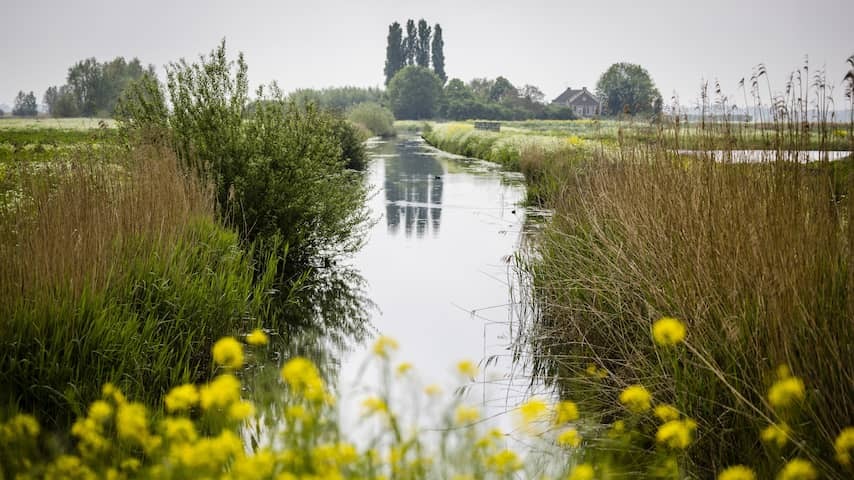
Farmers’ organizations, provinces, municipalities, and water boards have little confidence that the starting package of outgoing Minister of Agriculture Femke Wiersma (BBB) will solve the nitrogen crisis. They have therefore joined forces and are presenting their own nitrogen plan. In it, mandatory measures are also an option.
The organizations want the granting of permits, such as nature permits for farmers and building permits, to resume. That is currently stalled by the nitrogen crisis. The organizations believe that the starting package, which Wiersma presented at the end of April, offers too little certainty to restart the granting of permits in a short time.
Therefore, the organizations will present additional plans on Wednesday that should provide farmers and other entrepreneurs with certainty and stability. The proposals are supported by agricultural organization LTO, all municipalities, provinces, and water boards, and the NAJK, the organization for young farmers and horticulturalists.
The proposed measures should ensure that nitrogen emissions are reduced: agriculture must emit 42 to 46 percent less nitrogen in ten years than in 2019. To this end, it must be established how much nitrogen a company may emit in 2030 and 2035.
That standard must be achievable and have interim goals so that adjustments can be made in time if companies are lagging behind. If companies do not achieve the reduction, they may ultimately lose their permit or face other sanctions.
Redistribution of land around nature reserves
In addition, there will be mandatory measures around a maximum of five Natura 2000 areas where the nitrogen problems are greatest. This includes forced “legal reallocation.”
Areas will then be redistributed among landowners, such as farmers and nature managers. This distribution should contribute to the restoration of nature. If it turns out in 2030 at other Natura 2000 areas that the measures are not yielding enough nitrogen reduction, more stringent measures will also be needed there.
The organizations want to offer the outgoing cabinet a helping hand with the plan. They want to consult with the cabinet and other involved organizations about the elaboration of the plans and free up funding for them.
Entrepreneurs and farmers want clarity
“We must take rapid steps to restore nature. Entrepreneurs are longing for clarity and perspective for the future,” says Ina Adema, chair of the joint organization of provinces IPO. LTO chairman Ger Koopmans expects that farmers and horticulturalists will “finally be able to invest in innovation and sustainability of the company” through the plan.
Employers’ organization VNO-NCW, Natuurmonumenten, Bouwend Nederland, and Natuur & Milieu are cautiously positive about the plans. They see “a number of steps in the right direction” but emphasize that more is needed to unlock the Netherlands.
It is still unclear to them whether the proposed standards are sufficient. However, they are happy with the good intentions behind the proposal.
Farmers’ action group Agractie does not like the proposal. Agractie does not agree that each company should have a goal to reduce emissions.